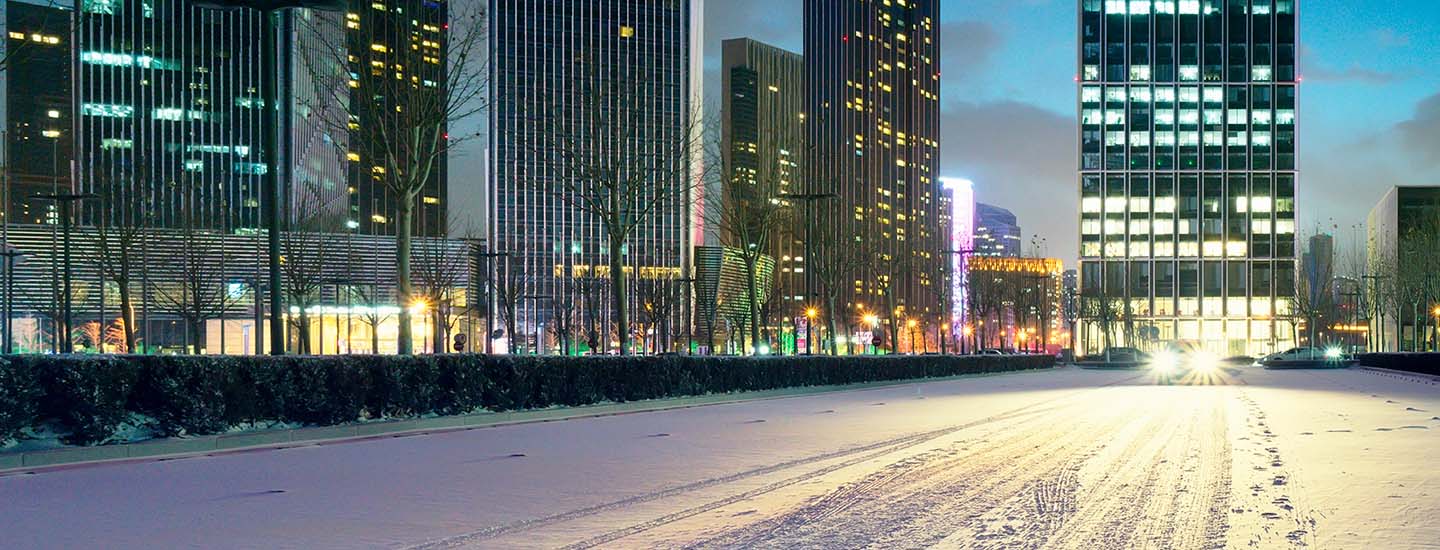Frigid temperatures, heavy snowfall, and high winds can be a strain during the winter months. Not only can these factors be a burden in our daily lives, but they can seriously impact your business network too. Cold weather can be practically damaging to network equipment if not closely monitored.
Don’t let the winter weather freeze your business. Vector Security Networks is here to explain how cold weather can impact your network and what you can do to ensure your business continues operating even during winter emergencies.
Winter Weather Can Freeze Your Business Network
Network equipment operates most effectively when it remains within an optimal temperature range. If the equipment becomes too hot, it can become defective or inoperable. The converse is also true, which is why it’s essential to protect your network equipment during the winter.
Temperatures at or below freezing (32°F/0°C) put unnecessary strain on your network. For instance, electronic devices can become brittle, begin cracking, and even start breaking apart if left alone long enough. Wires and cables can become stiff or freeze completely, impacting the electrical signals traveling through them.
Never underestimate the impact the winter weather can have on your network equipment. Just one faulty cable or switch can significantly hinder your business network’s performance. If you notice any connectivity issues or spot damaged equipment, it’s important to address them quickly before they become more serious issues.
How to Combat Winter Weather Conditions
Freezing temperatures and adverse weather conditions are unavoidable for colder climate locations. It’s essential to plan ahead and prepare for the expected winter conditions and the unexpected blizzard or temperature drop when building or expanding your business network. Even if you don’t live in a winter-heavy location, you should still be prepared for a cold weather anomaly.
The best thing you can do is ensure most, if not all, of your network equipment is installed inside a temperature-controlled location. There’s a far less chance of freezing if it’s in a closely-monitored area. For most businesses, this is inside their offices. But it can also be an external location.
However, some equipment must operate outside the building during the winter. Security cameras are a prime example. External cabling is also common, particularly if they’re connecting security cameras. It’s important to insulate these cables so they don’t freeze or become damaged. You’ll also want to conduct regular maintenance checks on any external devices to ensure they’re still working properly, especially if temperatures drop to negative levels.
Another key area of focus should be winter weather emergencies. As the old adage goes, expect the unexpected. A critical power outage can happen at any moment, but they’re more likely to happen in the winter. You should have a backup generator ready to start at a moment’s notice. This ensures all essential infrastructure remains operational and doesn’t freeze during emergencies.
You should also plan for blizzards or large snowfalls. Snow can accumulate quickly, making it difficult to enter or exit safely. An emergency winter team can help clear paths and ensure someone has access to key areas of the building at all times.
Maintain Business Continuity During the Winter
When a network emergency strikes, you must react quickly. Harsh winter weather conditions can make it more difficult to manage a business network. But with the right planning and resources, your business should be able to make it through the winter without a hitch.
Having a team like Vector Security Networks on your side can also be a huge benefit. We can monitor your network for you and ensure everything is running smoothly even during winter emergencies. Our team is always ready to assist and address key issues as they arise.
If you would like to learn more about Vector Security Networks and the types of solutions and services we provide, feel free to contact us today.


